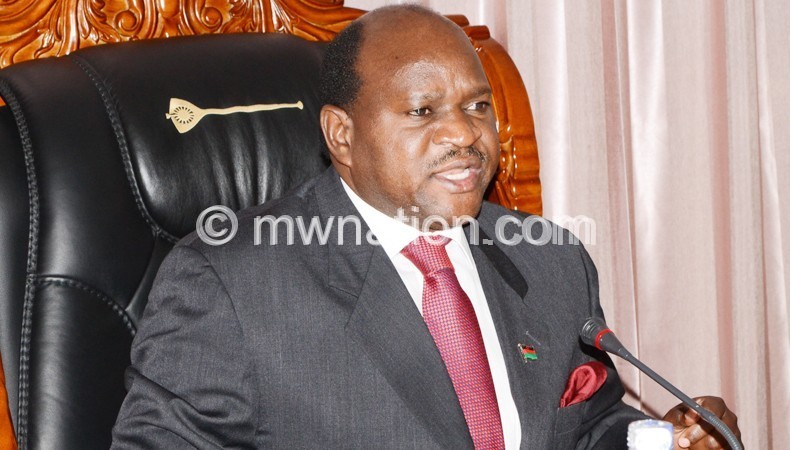Loopholes in Declaration of Assets Act
When it was thought that the newly passed Declaration of Assets Act would simplify declaration by public officers, a private practice lawyer has exposed new loopholes, pointing out that the law does not make compulsory declaration of assets by public officers, including the President.
Justin Dzonzi of Justice Link said in an interview on Wednesday when The Nation wanted to find out the remedies provided by the law in the event that the President and other public officers fail to declare their assets within three months as per requirement.

He said should the three months elapse without President Peter Mutharika declaring his assets, little could be done as the Act does not provide for any penalties.
Said Dzonzi: “It means the President has failed to comply with the legal requirement. Unfortunately, the new Act did not provide for any consequences that must be before the President. So, under those circumstances, we just have to wait and see.
“It is one thing I noted as a major weakness of the law as it did not make declaration compulsory in case there are consequences attached to non-compliance.”
Under the law, every listed public officer is required, not later than three months (90 days) after assuming duties, to submit a declaration of assets to the director.

However, almost six months since the law was assented to by former president Joyce Banda, the director, who will be responsible for enforcement mechanisms, regulation and monitoring of declaration of assets and business interests, is yet to be appointed.
Speaker of the recent past Parliament, Henry Chimunthu Banda, said on Wednesday now that members of Parliament (MPs) have taken oath and will be meeting from next Tuesday, the position of the director will finally be filled.
According to the law, Parliament’s Public Appointments Committee (PAC) will be responsible for the appointment of the director.
Section 56 (8) (b) of the Constitution gives a period of 30 days from the day of the first meeting of the National Assembly after a general election to establish the committee, alongside the budget and legal affairs committee.
However, Chimunthu Banda said the Constitution does not explicitly say when PAC should appoint the director.
He said: “The Act that establishes the Directorate of Declaration of Assets says any public officer upon appointment into public office must declare his or her assets within three months so by reference it means once the committee is in place it can appoint the director anytime.
“These committees are created within the first 30 days so they can do their work in the remaining 60 days [of the three months] and there will be no conflict with the law but if they delay it will be a constitutional crisis because the people would have been in their offices for more than three months.”
According to the law, the director shall hold office for a period of three years and shall be eligible for re-appointment for one additional term of three years.
The law also states that declarations shall be treated as public information and will be accessed upon application to the director. And where he refuses access, he shall, within 14 days from receipt of the application, notify the requesting party in writing stating grounds for his refusal.





